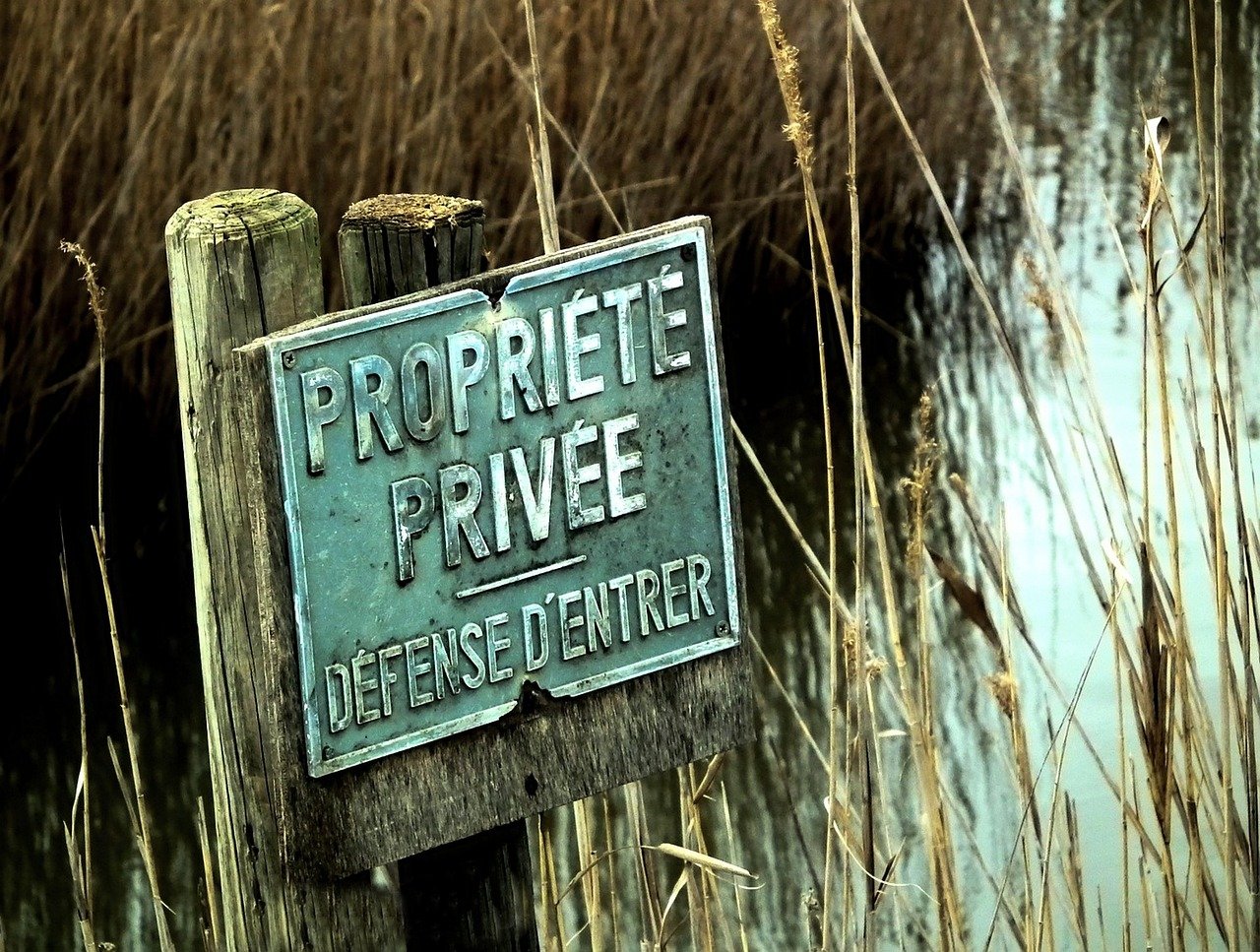Image Credit: Pixabay
In this post we’ll take a look at negation in French.
Ne… Pas: The Basics
The most basic negation in French is ne… pas. Ne goes in front of the verb (or object pronoun), and pas comes after.
- Je travaille demain. Je ne travaille pas demain.
I’m working tomorrow. I’m not working tomorrow. - Tu me comprends. Tu ne me comprends pas.
You understand me. You don’t understand me. - Elle le lui dit. Elle ne le lui dit pas.
She says it to him. She doesn’t say it to him.
In spoken French, it’s common to drop the ne. But you never drop pas.
- Je travaille pas demain.
I’m not working tomorrow. - Tu me comprends pas.
You don’t understand me. - Elle le lui dit pas.
She doesn’t say it to him.
With the passé composé, put ne… pas around the auxiliary, avoir or être. With modals or other verbs that are followed by infinitives, put ne… pas around the main conjugated verb.
- Excusez-moi, je n’ai pas reçu la confirmation de notre réservation.
Excuse me, I haven’t received confirmation of our reservation. - Ils ne sont pas partis hier.
They didn’t leave yesterday. - Je ne veux pas travailler demain.
I don’t want to work tomorrow. - Elle ne peut pas venir avant vendredi.
She can’t come before Friday. - Je ne préfère pas aller à cette soirée.
I prefer not to go to this party.
You can add du tout to intensify the negation.
- Je n’aime pas ça du tout.
I don’t like that at all. - Vous n’êtes pas du tout prêts.
You aren’t ready at all.
Pas de: Negation of du, de la, des, un, une
Remember that partitives (du, de la, des) and indefinite articles (un, une, des) are replaced by de (or d’) in the negative.
- As-tu un portable ? Non, je n’ai pas de portable.
Do you have a laptop? No I don’t have a laptop. - Ils n’ont pas d’autres choses intéressantes à vendre.
They don’t have any other interesting things to sell. - Du café ? Non, je ne bois pas de café, merci.
Coffee? No, I don’t drink coffee, thanks. - Il y a un distributeur de billets ici ? Non, il n’y a pas de distributeur, désolé.
Is there an ATM here? No, there’s no ATM here, sorry. - Tu as de l’argent sur toi ? Non, je n’ai pas d’argent.
Do you have any money on you? No, I don’t have any money.
But remember that this only applies to direct objects. You can use pas un/une, for example, after être.
- Ce n’est pas un bon film !
That’s not a good film! - Ce n’est pas une lune !
That’s not a moon!
Ne… rien: Nothing, Not Anything
Use ne… rien to express nothing or not anything.
- Il ne dit rien.
He’s not saying anything. - Tu ne veux rien ?
You don’t want anything? - Elle ne fait rien pour arranger les choses.
She did nothing to arrange things. - Je n’ai rien emmené de spécial pour la fête.
I didn’t bring anything special for the party. - Il ne nous reste rien du tout à manger !
There’s nothing at all left for us to eat! - Je n’ai rien à ajouter.
I have nothing to add. - Tu n’as rien à lui envier.
You have nothing to envy him for.
Rien can also be the subject of a sentence, with ne appearing before the verb.
- Rien ne m’intéresse dans ce magasin.
Nothing interests me in this store. - Les jeux sont faits. Rien ne va plus !
The chips are down. (Lit, the games have been made.) No more bets! - Rien n’est aussi important que l’amour.
Nothing is as important as love.
Ne… personne: No one, Nobody, Not Anyone, Not Anybody
Ne… personne expresses not anyone or no one.
- Il n’y a personne dans ce restaurant.
There’s no one in this restaurant. - Je ne vois personne que je connais.
I don’t see anyone who I know. - Tu n’as personne à qui parler ?
You have no one to speak to? - Nous ne voulons déranger personne.
I don’t want to bother anybody.
If personne is the subject, ne comes before the verb.
- Personne n’est venu au concert.
No one came to the concert. - Personne n’est intéressé ?
Noboy is interested? - Personne n’a répondu quand j’ai sonné à la porte.
No one answered when I rang the doorbell.
Ne… jamais: Not ever, Never
Use ne… jamais to express never or not ever.
- Il n’est jamais trop tard pour apprendre une langue.
It’s never too late to learn a new languages. - Mangez-vous des escargots ? Non, je ne mange jamais d’escargots.
Do you eat snails? No, I never eat snails. - Je ne suis jamais venu ici.
I’ve never come here. - Elles ne sont jamais allées en France.
They have never gone to France. - Pourquoi ne veux-tu jamais discuter de ça ?
Why do you never want to discuss that? - Il ne veut jamais prendre l’avion.
He doesn’t ever want to fly/take the plane.
You can begin a sentence with jamais for emphasis. The ne is left in its regular position before the conjugate verb.
- Jamais je n’avais vu une telle chose.
Never had I seen such a thing. - Jamais je n’aurais pensé ça de lui.
Never had I thought that of him.
Ne… plus: No more, No longer, Not any more
To express no more, no longer, not any more, not any longer, use ne… plus.
- Nous n’avons plus de glace à la pistache.
We don’t have any more pistachio ice cream. - Désolé, Il n’y a plus du tout de gâteau au chocolat !
Sorry, there isn’t any more chocolate cake! - Il ne pleut plus aujourd’hui.
It’s no longer raining today. - Tu es sûre que tu ne veux plus de vin ?
You’re sure that you don’t want any more wine? - Malheureusement, il ne nous reste plus de billets pour le spectacle.
Unfortunately, there aren’t any more tickets for the show for us. - Je ne reviendrai jamais plus dans ce restaurant !
I’m never coming back to this restaurant again!
Check out this post for more information on how to pronounce plus.
Ne… aucun/aucune: Not a, Not any, None, No
The negative ne aucun/aucune expresses not a, not any, no + Noun.
- Nous n’avons aucune place disponible.
We don’t have any available spot. - Il n’y a aucune raison de s’inquiéter.
There’s no reason to get worried. - Je n’aime aucun de ces plats.
I don’t like any of these dishes. - N’as-tu aucune autre option ?
Don’t you have any other option?
Ne… nulle part: Nowhere, Not anywhere
Nulle part means nowhere or not anywhere.
- Je n’ai vu d’informations nulle part.
I didn’t see any information anywhere. - Tu ne trouveras nulle part ailleurs un meilleur choix.
You won’t fin a better choice anywhere else. - Savez-vous où sont mes amis? Je ne les ai vus nulle part.
Do you know where my friends are? I haven’t seen them anywhere. - Nous sommes perdus au milieu de nulle part.
We’re lost in the middle of nowhere!
Ne… ni, ni: Neither… nor
Use ni… ni… to mean neither… nor or not either. Ne goes before the main conjugated verb.
- Je ne dit ni oui, ni non.
I’m not saying yes or no. I’m saying neither yes nor no. - Il ne faut arriver ni trop tôt, ni trop tard.
We can’t get there either too late or too early. We can get there neither too late nor too early. - C’est dommage, je ne peux manger ni de crustacés, ni de noix.
It’s too bad, I can eat neither shellfish nor nuts. I can’t eat either shellfish or nuts. - Je ne supporte ni le froid, ni l’humidité.
I can stand neither the cold nor the humidity. - Il ne veut ni à manger, ni à boire.
He wants neither to eat nor to drink.
Not Yes, Still Not, Not Enough
Other common negative expressions are ne… pas encore (not yet), ne… toujours pas (still not), ne… pas assez (not enough).
- Je n’ai pas encore le courage d’aller chez le dentiste.
I don’t have the courage to go to the dentist yet. - Vous n’avez pas encore fini ?
You haven’t finished yet? - Il n’a toujours pas réussi l’examen.
He still hasn’t passed the test. - Elle n’est toujours pas rentrée.
She still hasn’t gotten home. - Tu n’as pas assez d’argent ?
You don’t have enough money? - Vous n’avez pas assez dormi !
You didn’t sleep enough!
Independent Negation
You can use negative phrases on their own, independently of verbs and verb phrases.
- Qui veut venir? Pas moi.
Who wants to come? Not me. - Pas de soda pour moi, merci.
No soda for me, thanks. - Pas d’ail, s’il te plait !
No garlic, please! - On peut repousser le rendez-vous ? Oui, pas de souci.
Can we push back the meeting? Yes, no problem. - Tu as fini? Pas encore.
Have you finished? Not yet. - Y at-il un problème ? Non, pas du tout !
Is there a problem? No, no at all! - Qu’est-ce qu’il y a ? Rien.
What’s the matter? Nothing. - Tu veux quelque chose? Non, rien du tout.
Do you want something? No, nothing at all. - Tu as vu quelqu’un par ici. Non, personne.
Have you seen someone this way? No, nobody. - Encore une part? Non, plus de gâteau pour moi, merci.
Another piece? No, no more cake for me, thanks. - Non merci, jamais d’alcohol avant de conduire.
No, thank you, never any alcohol before driving. - Quelle expérience. Plus jamais !
What an experience. Never again! - Y a-t-il un distributeur ici? Non, aucun.
Is there an ATM here? No, none. - L’une des photos vous plaît ? Non, aucune.
Do you like one of the photos? No, not a one.
N’Entrez Pas! Negative Commands
Ne and pas go around the verb in commands as well.
- Entrez! N’entrez pas!
Come in! Don’t come in! - Parle plus fort. Ne parle pas plus fort.
Speak louder. Don’t speaker louder.
In positive commands, the position and type of pronoun may be different than in statements. For example, compare:
- Tu me le donnes.
You give it to me. - Donne le moi !
Give it to me!
In negative commands, you don’t have to worry about any of these changes.
- Ne me le donne pas.
Don’t give it to me. - Ne leur envoyez pas l’e-mail.
Don’t send them the email. - N’en mange pas!
Don’t eat any!
Défense de / Interdiction de
You’re likely to come across signs telling you what you can’t do that use the phrases défense de or interdiction de.
- Défense de fumer
No Smoking/Smoking Prohibited - Défense d’entrer
No Entry - Défense de nourrir les animaux
Do Not Feed the Animals - Interdiction de stationner
No Parking - Interdiction de marcher sur les pelouses
Do Not Walk on the Grass - Interdiction de prendre des photos
No Photos
Do you want to learn French?
Check out our other posts on French language, culture, and more. And if you’re looking for convenient and affordable live French lessons with a real teacher, check out The Language Garage. Our lessons are given online in a virtual classroom, so it doesn’t matter where you live or work. We can come to you. And we have flexible options, with a free trial so that you can decide if there’s a fit. Check us out!






